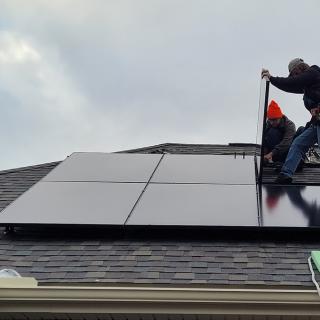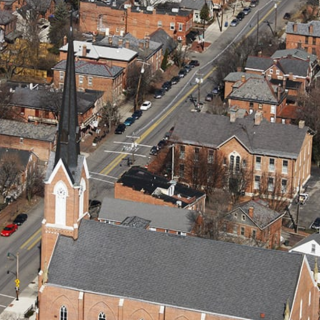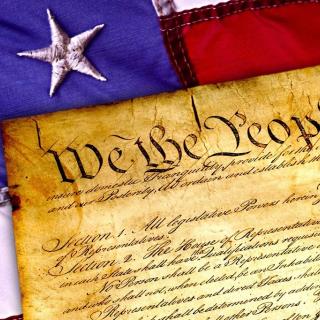Advertisement
Day Five - #BlackPride4 Trial
Once again, the #BlackPride4 trial courtroom was packed. All seats were filled inside courtroom 13-A and there were another 20 or so community supporters in the hall.
In the finest tradition of mutual aid, the supporters were providing lunch for each other to the point that the judge had to admonish them after break that while it was a “public forum” she didn’t want the courtroom trashed.
The supporters immediately went to work tidying up the place.
Early in the trial, the Columbus Police Officer in charge, Hasan, said the orders of the day were for the police to use verbal commands first if someone was blocking the Parade, followed by escorting them out of the street, and finally using mace if they didn’t comply.
One of the witnesses’ testimony indicated that the police disregarded the first two stages and proceeded to macing and the forcible take-downs and arrests of the demonstrators.
Dan McKim who holds a Ph.D. in neuroscience and is doing research and postdoctoral studies at Ohio State University gave testimony in the early afternoon. McKim had been at the Pride Parade with his girlfriend and videotaped the police attack on the #BlackPride4. He noted that “Three officers arrived within 30 seconds…very, very quick.” He testified they arrived mounted on bicycles and proceeded to use their bikes as weapons to “push against the protestors” who had linked arm-to-arm in the street.
McKim testified that he was sprayed with mace from behind which produced a “pretty bad burning sensation.” He testified that he mainly recalled “police officers on top of people.” He also noted that his girlfriend had been “man-handled” by a police officer. He said the police were “immediately aggressive” and from the time the protestors entered the street to when the police arrived to forcibly remove them took about a minute to a minute and a half.
McKim stated that the police swiftly and “successfully knocked people to the ground.” He described it as a “dogpile.”
McKim himself described being hurt in the incident when a police officer forced a bike into his abdomen and the bike pedals into his shin, causing him pain.
McKim described what he saw as the police using a “considerable amount of force.”
Lori Gum, the Parade Director for Stonewall, testified earlier in the day that the Parade itself pauses and stops at various times and that a small disruption would not have inconvenienced anyone.
In final arguments, Attorney Ed Forman who represented Ashley Braxton, reminded the jury that Braxton was videotaping the incident and was not even a demonstrator and it is not really clear why the police arrested her, other than the arresting officer was told by his sergeant to “Grab her!” Forman suggested that it may have been because she was African American. Other videotaping were white, including McKim, and were not arrested.
Also, Forman repeatedly played a tape of the incident that showed only a few seconds elapsed between the time arresting officer Hilgenberg arrival at the scene and Braxton being body-slammed into a bike. He asked how could she be resisting arrest when she was never told she was under arrest, and she was immediately the victim of excessive use of force by Hilgenberg.
Attorney Constance Gadell-Newton, arguing for Wriply Bennet, questioned why the police did not use de-escalation tactics, like talking or giving commands as the they were ordered to do so. She also argued that her client couldn’t have been disorderly in part because disorderly means that you inconvenienced somebody. Both Gadell-Newton and Forman argued that it was the police that inconvenienced police and stopped the Parade through their excessive use of force.
All three of the #BlackPride4 are charged with disorderly conduct, along with other more serious charges. Another element of disorderly means your actions are reckless and not reasonable.
Nothing could be more reasonable than demonstrating against the deaths of black trans people in America at a Stonewall Parade that takes its name from a riot against police brutalization of the gay community.




